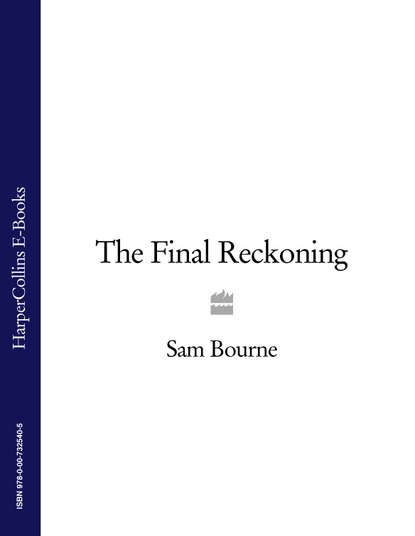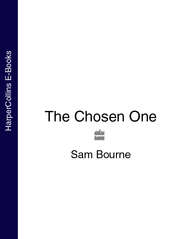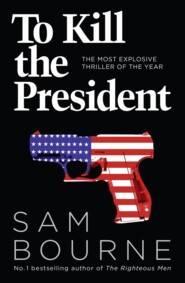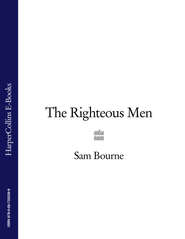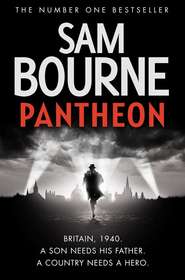По всем вопросам обращайтесь на: info@litportal.ru
(©) 2003-2024.
✖
The Final Reckoning
Настройки чтения
Размер шрифта
Высота строк
Поля
The Chef de Cabinet explained that technicians were trying to connect the SG via speakerphone.
‘In the meantime, I suggest we establish what we know and work out some options that we can present to the Secretary-General. Can I start with you, Henri?’
The Under-Secretary responsible for the security of UN personnel across the globe glanced down at the note he had hastily written when being briefed by the Watch Commander, translating from his own handwritten French.
‘We understand that a man was shot at 8.51 a.m. today by a member of the UN's Security and Safety Force in front of the main visitors' entrance between 45th and 46th Streets. He had been monitored by a team from the NYPD Intelligence Division who had been in liaison with ourselves and they had cause to believe he posed an imminent danger to the United Nations. That information was passed to the Watch Commander and he passed it onto the guards on duty, including the officer who fired his weapon, believing the man to be a suicide bomber.’
‘And the man is dead?’
‘Yes.’
‘And what else do we know? Is the building in any danger?’
‘The lockdown procedure was followed perfectly. The building is now secure. We have no reason to believe this was the start of a series of attacks.’
‘And why is that?’
Henri Barr hesitated. He looked over at Henning, who gave a small nod. ‘Because we strongly suspect that the man killed does not match the profile put together by the NYPD.’
‘What the hell does that mean?’ It was the USG for humanitarian affairs, a white South African ex-communist who had made his name in the anti-apartheid movement. His bullshit detector was famously robust.
‘It means that the man who was shot was old.’
‘Old?’
‘Yes, he was a very old man.’ Barr lost oxygen at the end of the sentence and gulped. ‘But his clothes fitted the description and they seemed to be the clothes of a suicide bomber.’
‘Oh come on. He was dressed like a suicide bomber and that's why we killed him?’
The Chef de Cabinet stepped in. This was no time for grandstanding or arguments, though he could feel the adrenalin rising in the room. ‘When you say “old”, Henri, what do you mean?’
‘We estimate maybe seventy, perhaps more.’
‘Did he even look Muslim?’ It was the question that several of them had wanted to ask but had not dared. But Anjhut Banerjee, the Indian Under-Secretary for Peacekeeping, had none of their inhibitions.
‘No,’ said Barr, looking down at his notes. ‘It seems not.’
‘Good God,’ Banerjee said, falling back into her chair. ‘You do know what this means, don't you?’ she said, looking directly at the Chef de Cabinet. ‘I was in London when the police shot some Brazilian electrician on a train because they thought he looked like a suicide bomber. Completely innocent man.’ She exhaled sharply, shorthand for ‘You have no idea the shit that is coming our way’.
‘What is our vulnerability, Henning?’ The Chef de Cabinet looking towards the lawyer.
‘You mean our liability?’
‘Yes.’
‘We can look into that, but I don't think we should get too hung up on compensation claims and the like. That's not the nature of the problem.’ He paused, forcing the man at the head of the table to press him.
‘What is the nature of the problem, then?’ ‘Same as with most legal problems in this place. It's not legal. It's political.’
‘So what do you suggest we do about it?’
‘I think I know exactly what needs to be done. And, better still, I know just the man to do it.’
CHAPTER FOUR (#u8d27c806-cdab-5283-89cf-7d9e3e5bed27)
Tom Byrne was jolted awake by a sound both unfamiliar and unpleasant. These days if he ever set the alarm, he used the iPod docked in his Bose bedside player, waking up to the soothing welcome of a song from his own collection. Yesterday it had been Frank Sinatra, serenading the morning with I've Got You Under My Skin. What an improvement on how he used to begin his day, with the dreary drone of the BBC bloody World Service.
But this noise was worse than the radio. It was a repeating chime, with a long, echoing sustain, the sound lingering in the air. Tom could feel his heart thumping in his chest. And then he saw the culprit: his new BlackBerry, fresh out of the box just yesterday. He hadn't got around to setting it to silent.
He squinted at his watch. Half past ten in the morning. That was OK: he hadn't got to bed till five, having worked through the night on the Dubai contract. Then he remembered: he hadn't spent all night working.
‘Hey, Miranda. Wakey wakey.’
There was a groan from the pile of brunette hair resting on the pillow next to him, followed by a lift of the head and a grunt. ‘It's Marina.’
‘Sorry.’ Tom swung his legs out of the bed and headed over for the blinds, which he louvred open, flooding the room with light. ‘OK, Marina, I mean it. Rise and shine.’
The woman in the bed sat up, shielding her eyes from the glare of the sun. She didn't bother to cover herself, affording Tom a daytime view of the generous breasts he had been enjoying just a few hours earlier. Maybe young Upper West Side brunettes had their drawbacks, but right now he wasn't seeing any. Perhaps he could hop back into bed for another half hour …
The BlackBerry sounded again, a single high-volume chime to herald the arrival of a message. Bound to be his clients: he had sent them the first draft of the paperwork in the middle of the night, and here they were, already demanding revisions. You could say what you liked about organized crime, but you had to hand it to them: they worked long hours.
His new clients were what you'd call ‘a family of Italian-American descent with long and historic roots in the New York construction industry’ – that is if you were their lawyer. They were now seeking to expand into property in the Persian Gulf, all legal and legit, but there was a pile of international papers that had to be filed first. A friend of a friend had recommended him and the family were happy to have him – they liked being represented by a big-shot international lawyer, British-born and with several years at the United Nations on his resumé – and he was happy to have them, earning more in a week than he had earned in a year working for the blue-helmets of UN Plaza.
He watched as Marina slunk out of bed, nodding her in the direction of the shower, then looked back down at the BlackBerry. 1 Missed Call. He pressed it to see a single name displayed: Henning.
Now there was a surprise. Henning Munchau, Legal Counsel for the United Nations, hadn't called Tom from his personal cellphone all that often even when Tom worked for him. But that had been more than a year ago.
Tom would listen to the message first, before calling back – a habit picked up at the UN, an institution whose organizing principle could be boiled down to three little words: wait and see. His younger self had always been in such a hurry, but Tom had learned from the best that it paid to take your time, give yourself a moment to think, let the other guy show his hand first, even – especially – when the other guy was your boss. Or former boss. A few seconds' thinking time might make all the difference. Christ, the rule even applied to face-to-face conversations in that place. It was as if Harold Pinter had written the dialogue, the way UN officials would pause to read each other's expressions and divine their motivations.
‘Hi Tom, it's Henning. We need to talk. I know what you said about… Meet me at that coffee shop as fast as you can. Tom, I… don't call me back.’
Not even a ‘long time no speak’, the prick.
So the UN's most senior lawyer needed to discuss a topic so sensitive he didn't dare do it on the telephone or in his own building. That was hardly news: everyone knew there was not a word spoken in UN Plaza that was not monitored, by the Yanks at NSA, by the Brits at GCHQ and by God knows who else. But ‘meet me at the coffee shop’ was especially interesting. That meant Henning didn't even want to give away a specific location. And why on earth, given everything that had happened, had he called Tom? If it had been anyone else from the UN, Tom would have hit delete and not given it another thought. But this was Henning.
He walked into the closet, reviewing the line of suits arranged like conscripts on parade. Big meeting like this would normally call for the Prada or Paul Smith. But Tom didn't want to rub Henning's public sector salary in his face; he'd go for something plainer. Pink shirt and cufflinks? No, the plain blue would do. He caught a glimpse of himself in the mirror: wrong side of forty, but he could still scrub up all right. No time for a shower today though. He shot two bursts of Hugo Boss aftershave onto his neck and mussed up his close-cropped, dirty blond hair.
The BlackBerry was now winking with the arrival of an email. Subject: Dubai. Sure enough, the Fantonis had been reading the small print. They'd noticed the legal obligation to pay compensation to the fishermen whose villages they were about to destroy to make way for a luxury high-rise development. ‘Can't we make this clause go away?’
Tom got ready to draft a reply that would explain the moral obligation on all developers to ensure that anybody rendered homeless would be adequately …
Fuck it. Using his thumbs, he typed: ‘Leave it to me: it's gone.’
He gathered up his things, admiring again the vast, open space of this loft apartment. He wondered about firing up the plasma TV, to check on the news but decided against it: Henning was waiting. Instead he poked his head around the bathroom door and called into the cloud of steam: ‘See yourself out, Miranda.’
CHAPTER FIVE (#u8d27c806-cdab-5283-89cf-7d9e3e5bed27)
The cab driver shook his turbaned head, muttering that he would get as far as he could, but the road had been blocked for the last hour. ‘On the radio, they say something about terror attack. You here on 9/11?’





